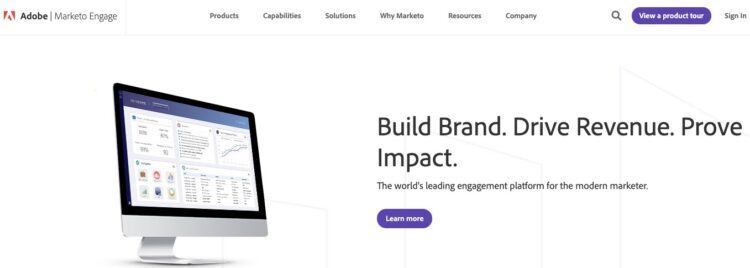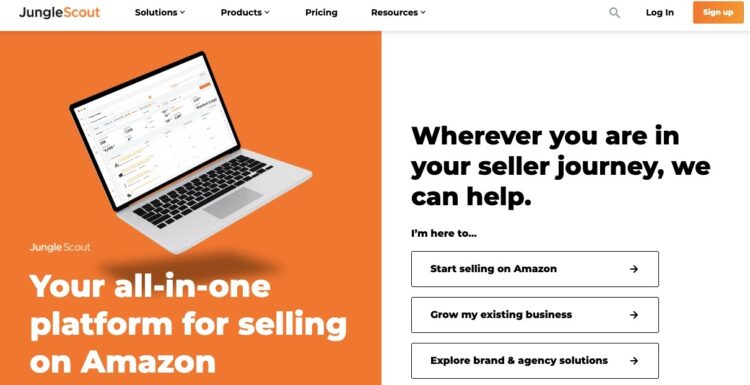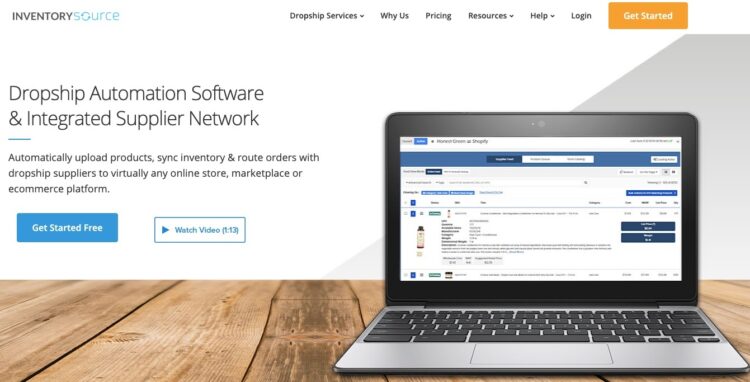
No surprise. Ecommerce is booming. But it’s challenging to run an e-commerce store, not to talk of improving store performance.
Luckily, a lot of e-commerce processes are repetitive.
So, you can increase the productivity of your store by automating those processes.
Some of the activities you might deal with include:
- Carrying out product and competitor research analysis
- Managing inventory
- Collaborating with your team
- Managing Content
- Communicating with customers
- Running loyalty programs
- Taking orders
- Shipping items
- Tracking and managing orders and more.
All of these activities happen simultaneously, so using tools will help ease the tasks.
Let’s look at some productivity tools that will improve the quality, speed, and growth of your e-commerce business.
7 Tools to Drive E-Commerce Growth
By 2024, ecommerce sales will exceed $6.5 trillion, as reported on HostScore.net.
These tools will come handy for taking your share of that windfall. They will help with managing tasks like marketing, content management, competitive analysis, and more.
1. Ahrefs
If you want to run a competitive e-commerce business, you can’t be oblivious of what your competitors are doing. Ahrefs helps you manage your SEO like a pro, regardless of your level of expertise. You can try the tool with before choosing the plan that’s good for your business.
The tool shows you the strategies that your competitors use, their backlinks, and the keywords that help them rank high. Plus, it enables you to drive more traffic and increase the ranking of your e-commerce `
2. Marketo
Marketo is a what-you-see-is-what-you-get (WYSIWYG) marketing tool that you can use to create landing pages and forms. It studies the behavioral pattern of your customers and targets the ones that are more likely to buy. For pricing, you can check out the feature of each plan then contact sales with your choice.
Marketing automation tools help merchants to automate content management, such as updates on social media, newsletters, and more. It allows customer segmentation based on demographic and behavioral patterns.
3. Jungle Scout
As an online seller, it’s important to research products, regardless of where you sell. Jungle Scout is one of such tools that you can use to start selling on Amazon, grow your existing business, or explore other brands and agencies.
It helps with the identification of top products in your chosen niche. Plus, Amazon sellers can track their product performance at an affordable price.
4. Qualaroo
Qualaroo helps you increase shopping cart conversion and reduce abandonment. It goes beyond analytics to tell you why visitors or customers are leaving your store. This tool surveys your customers to determine the problems you need to fix and what they want.
Depending on the price plan you choose, will show you:
- What makes customers stay on some pages for too long
- What customers don’t like about your store
- Pages with high exit or bounce rates and more
You’ll find out how to better satisfy your customers.
5. Inventory Source
Inventory Source is a fully-automated SaaS tool that’s used solely for managing inventory. The tool automatically updates your website, syncs your inventory, and integrates features that take care of ordering and tracking. It makes sure that you never go out of stock on products that matter most to you.
Inventory Source integrates with over 20 e-commerce platforms and more than 100 drop shipping companies. Such integrations include Shopify, BigCommerce, WooCommerce, Amazon, Walmart, and more. It also allows you to add your preferred vendors if they’re not in the existing list.
6. MailChimp
All your research and management will go to waste if you don’t sell your products. Marketing takes your products to your customers in the form of emails, social media, or content creation. Albeit, you should use tools that allow you to track the results of your campaigns.
Small businesses find email marketing stressful, but you need to build and use an email list if you want to grow your e-commerce business. MailChimp makes email automation easy by providing templates that you can customize and use. If you need to find an alternative, check out this here.
You can start with the no-cost entry-level if your business is new. Otherwise, choose a plan that fits your business size.
7. BuzzStream
Buzzstream targets influencers directly, track conversations, and build relationships to enhance visibility for your e-commerce store. The centralized database makes collaboration easy. The platform allows you to build links, get PR exposure, drive buzz, and promote your content.
The price plans of the tool accommodate small startups to enterprises.
Ecommerce Growth in the Face of Growing Competition
If COVID has done anything well, it’s getting people to shop online. Older people who would never buy things online are forced to do so — they’re the most vulnerable to the virus.
The Big Ecommerce Trend
Brick-and-mortar is collapsing as the shift to e-commerce is growing. In April 2024, physical stores in Europe and the US saw their sales fall by 17.9% and 7.7% respectively.
Whereas, ecommerce retail sales grew by 30% in Europe and 14.8% in the US. There’s no going back.
E-commerce has taken over.
The Problem is the Competition
It’s not only buyers who are going online.
Sellers too.
Hence we have a new challenge: conquering competition.
As more buyers come online, you’ll need to be in front of them, know how to sell online, and become their beloved go-to seller for your range of products or solutions.
That’s what e-commerce tools help you achieve.
How to Win with Tools
In this article, I’ve highlighted some of the top tools for the trade. So you can start with one that aligns with your goals and run with it.
Serving your market can feel overwhelming. So you want to start with where you’re experiencing the most pain. Is it email automation? Start with MailChimp.
Is outreach your biggest pain? Start with BuzzStream.
Use Inventory Source if getting your dropshipping done is tough.
There’s something for everything.
Wrap Up
As an e-commerce business owner, you need tools that help you streamline your business processes. The management tool features must be relevant to your business type, or they’ll cause distractions.
Productivity automation tools are littered everywhere, so the biggest challenge is to choose. You might decide to explore the alternatives of the tools in the list above to make a more informed decision.
Many entrepreneurs utilize an eCommerce hub like StoreCoach.com to keep up with the ever-changing landscape of e-commerce. Store Coach is an amazing resource for anyone who’s looking to buy, sell, or build an online business. They have free training on building niche eCommerce stores and they also help people buy and sell eCommerce businesses.


















